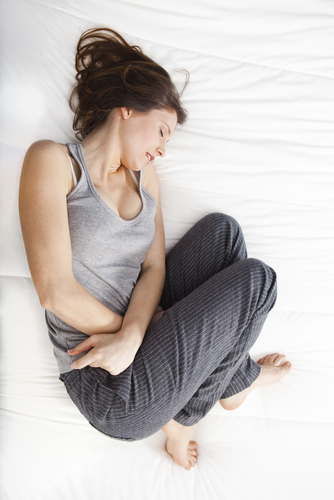 Pre- and menstrual disturbance
Pre- and menstrual disturbance
Health of the menstruation depends on the balanced smooth movement of Qi and Blood, and harmonised functioning of the organ systems (from an oriental medicine point of view). Classic symptoms associated with the difficult menstruation, such as tender breasts, headaches, irritability, lower backache, bloating, etc., indicate imbalance with Qi, Blood and/or the organ systems. Underlying root causes of these disturbances can be due to emotional strain, cold or dampness invading the body, irregular diet, overwork, and excessive physical and/or mental exertion.
Acupuncture and Kampo – Japanese herbal medicine may help regulate the movements of Qi and Blood and harmonise functioning of the organ systems.
- Recent systematic reviews of randomised controlled trials (RCTs) found that both acupuncture (Cho 2010a) and acupressure (Cho 2010b) are effective for primary dysmenorrhoea, providing significantly more pain relief than pharmacological treatments.
Please click here (period pain) and here (PMS) for more information.
Menopausal symptoms
Menopause itself is not a disease. It is a normal physiological event in a woman’s natural life cycle. For some women, this transition of the reproductive stage to non-reproductive stage happens suddenly or without significant symptoms while some will undergo irregularity in their cycles with difficult symptoms to carry on their normal daily activities.
Acupuncture may help you in your transition and reduce symptoms of the menopause and perimenopause by:
- regulating serum estradiol, follicle stimulating hormone and luteotrophic hormone (Xia 2008);
- increasing relaxation and reducing tension (Samuels 2008). Acupuncture can alter the brain’s mood chemistry, reducing serotonin levels (Zhou 2008) and increasing endorphins (Han, 2004) and neuropeptide Y levels (Lee 2009), which can help to combat negative affective states.
- stimulating nerves located in muscles and other tissues, which leads to release of endorphins and other neurohumoral factors, and changes the processing of pain in the brain and spinal cord (Pomeranz, 1987, Zijlstra 2003, Cheng 2009).
Please click here for further information.
If you need to know more about my services or book an appointment contact me.
